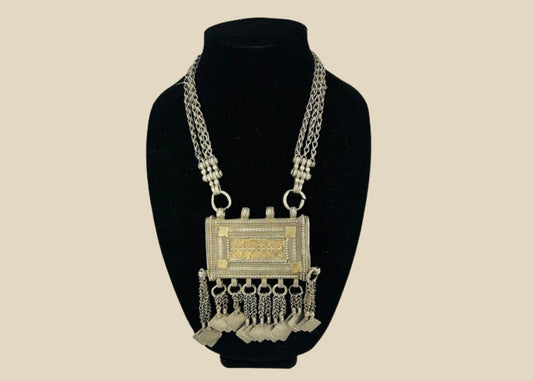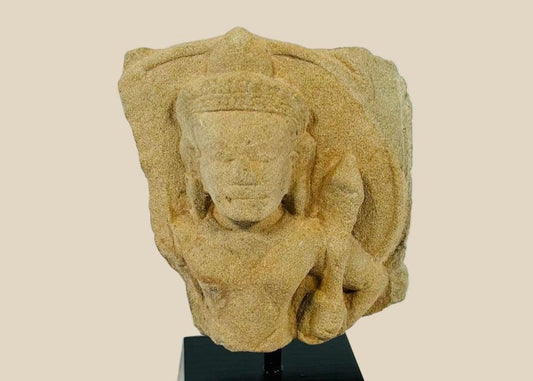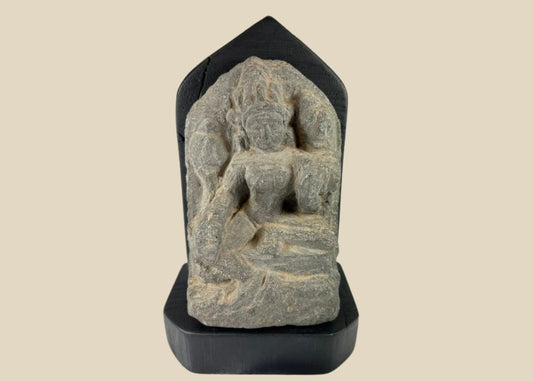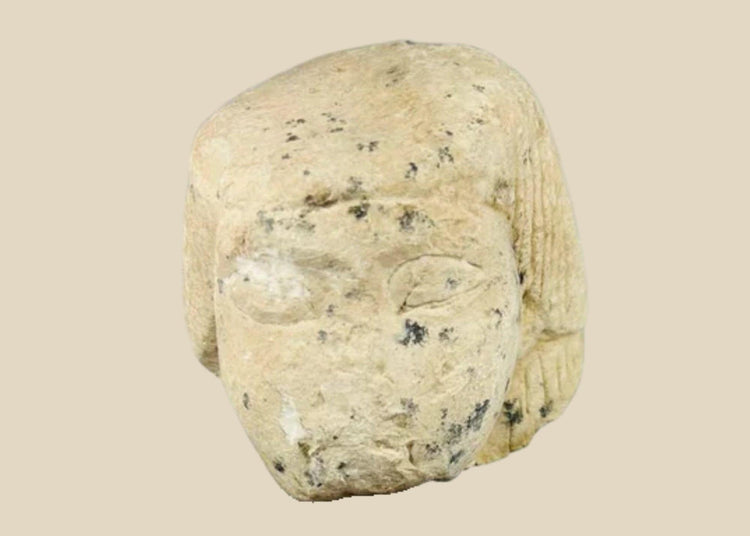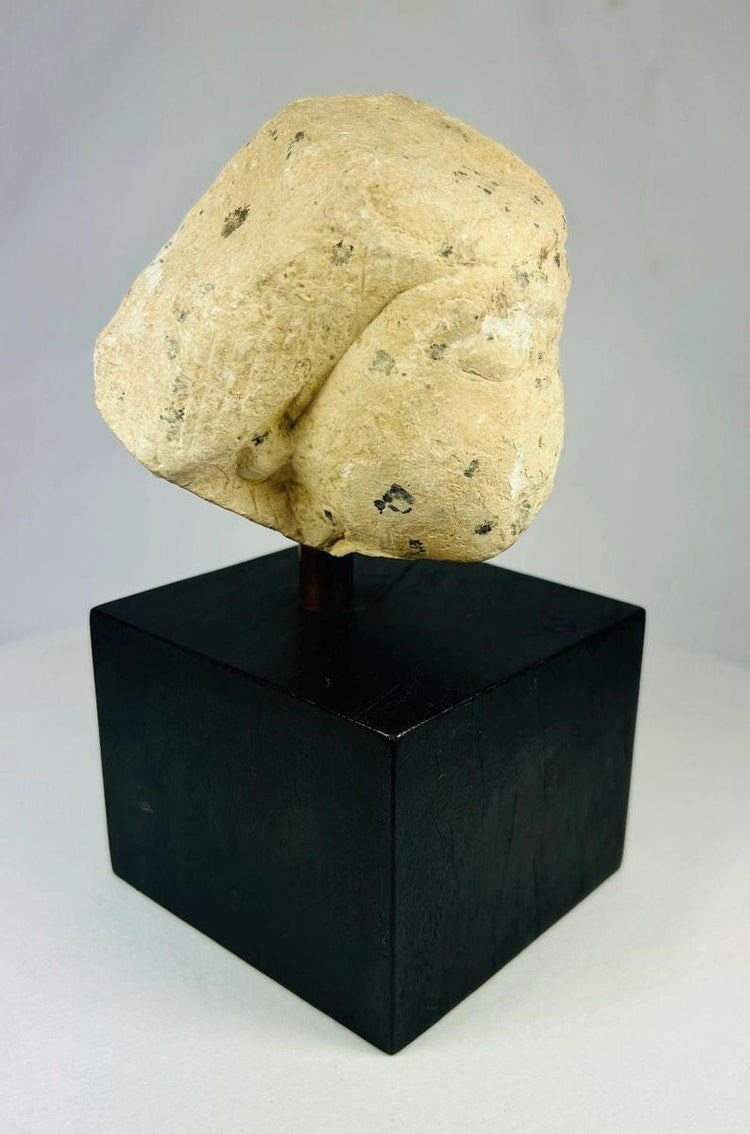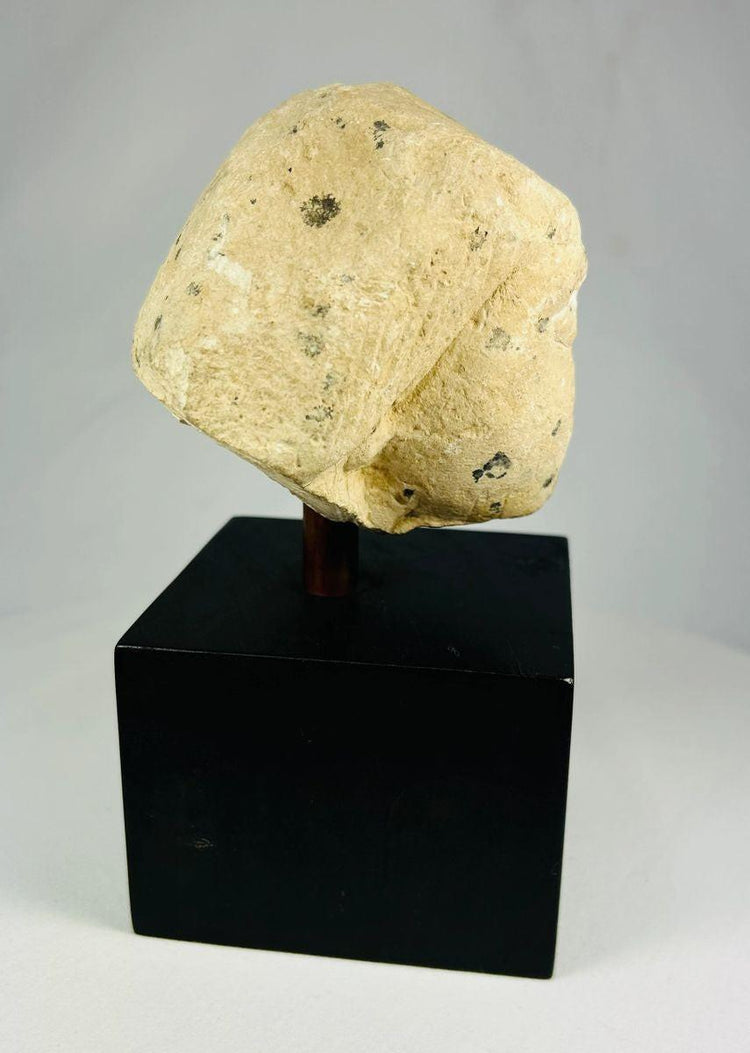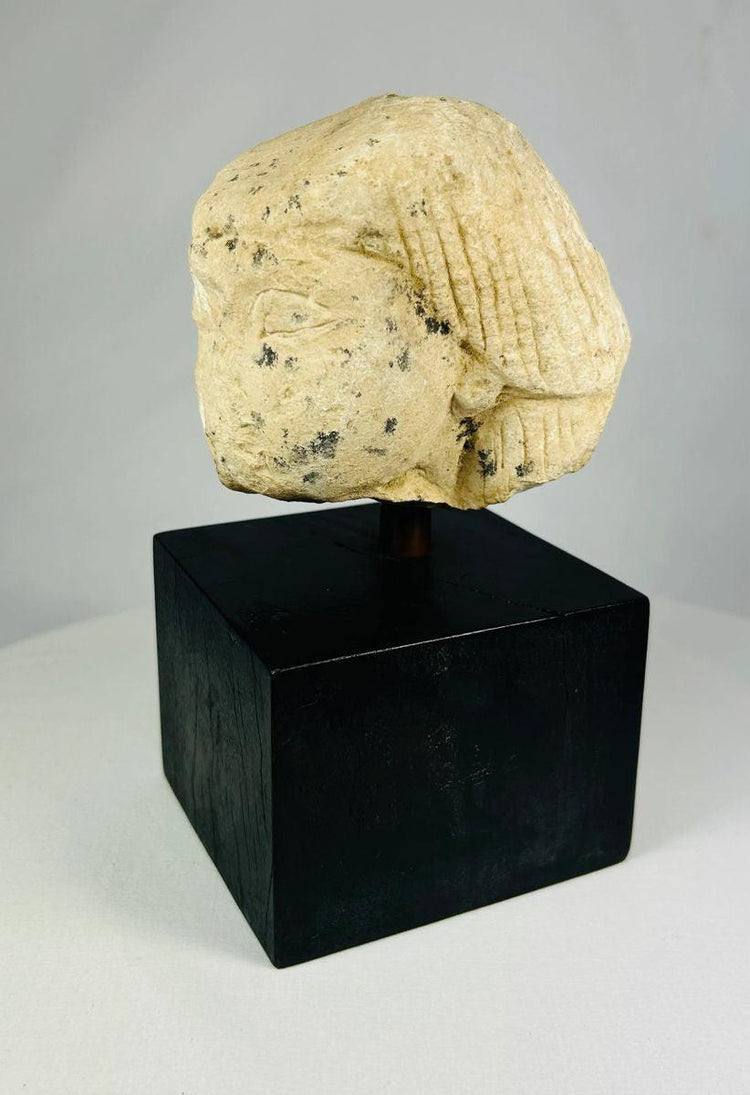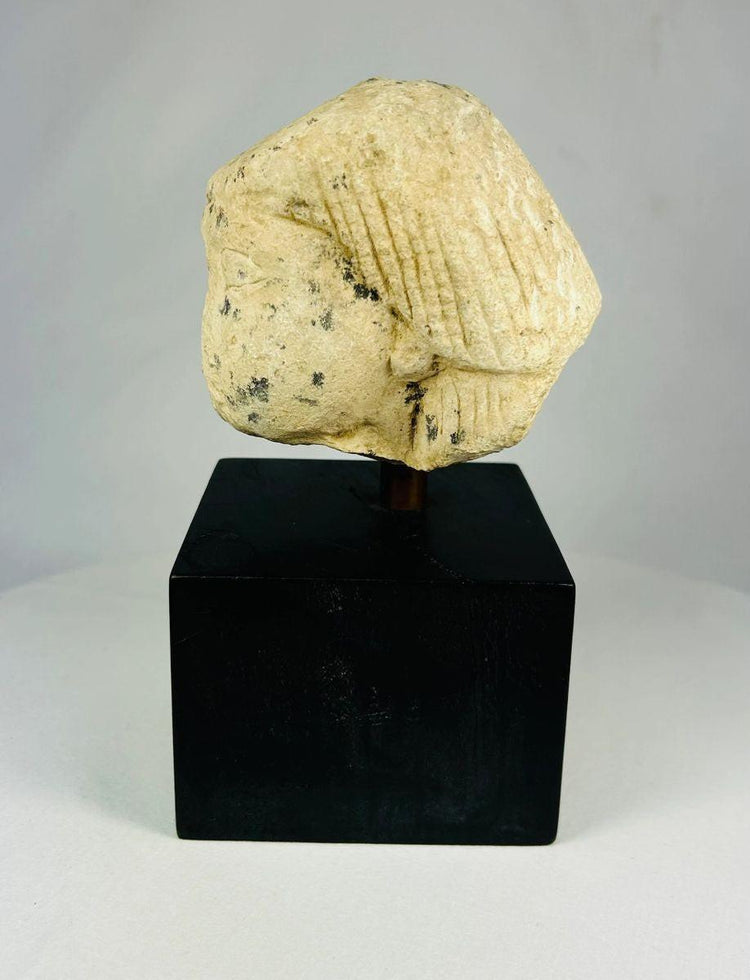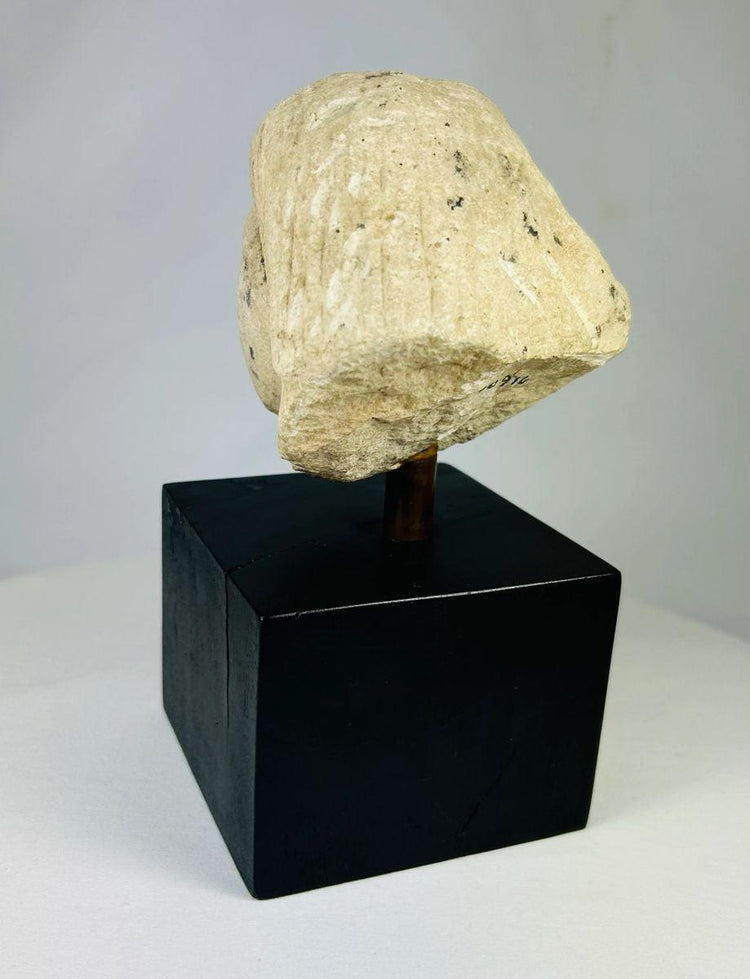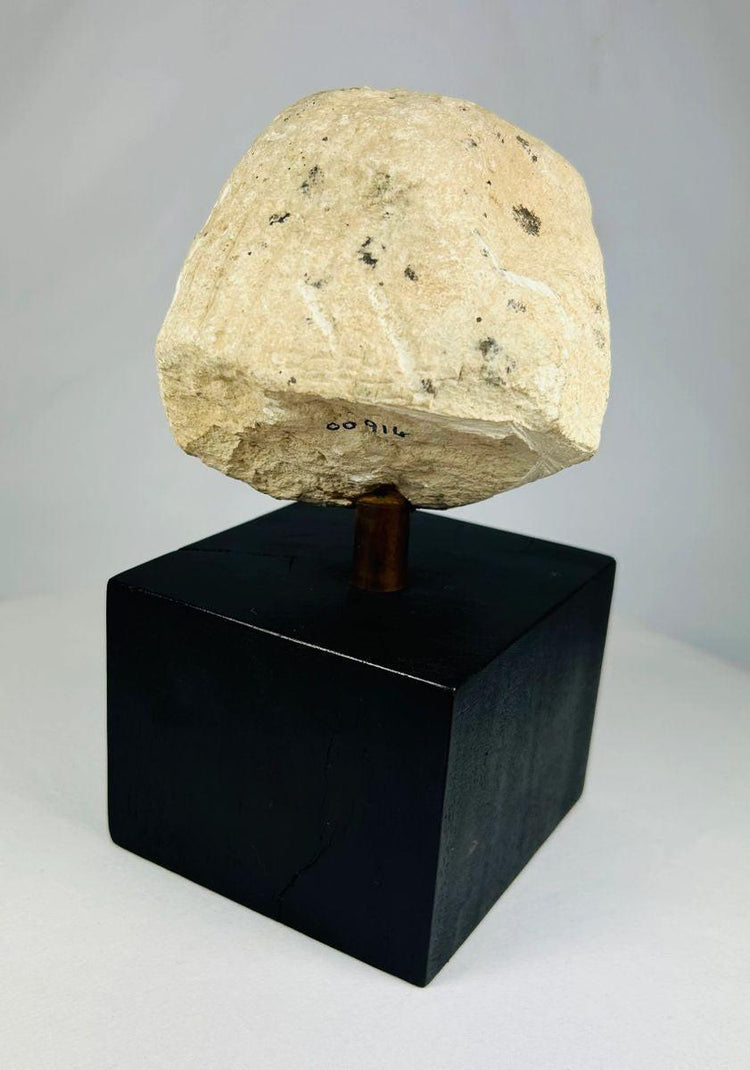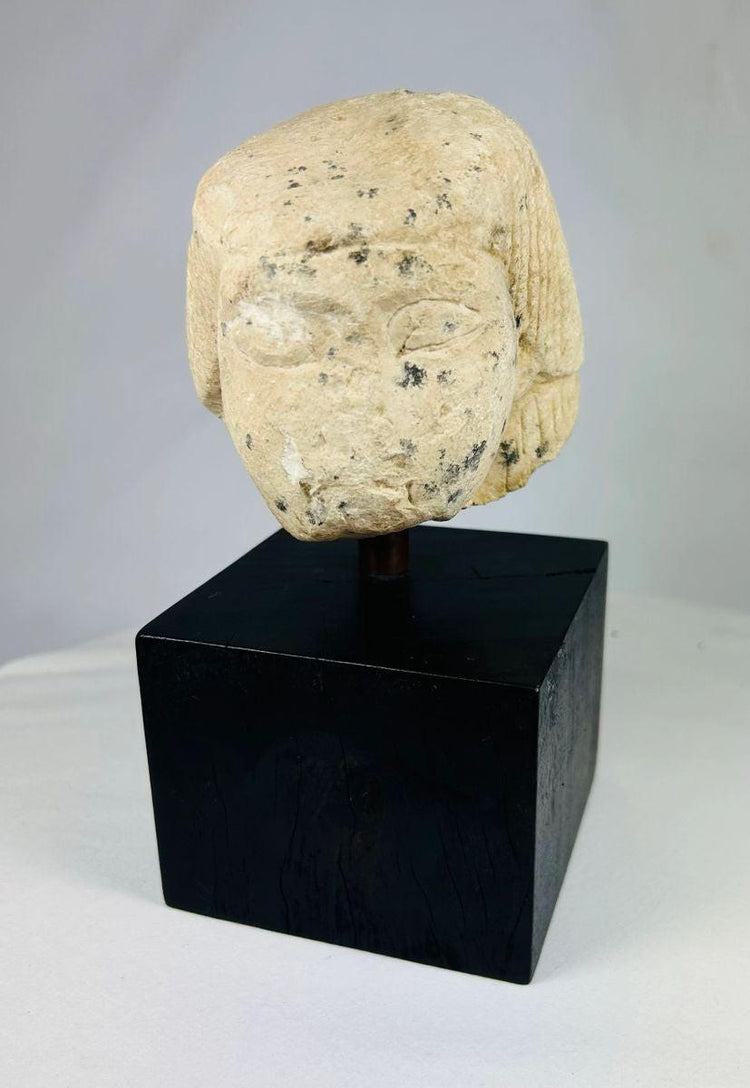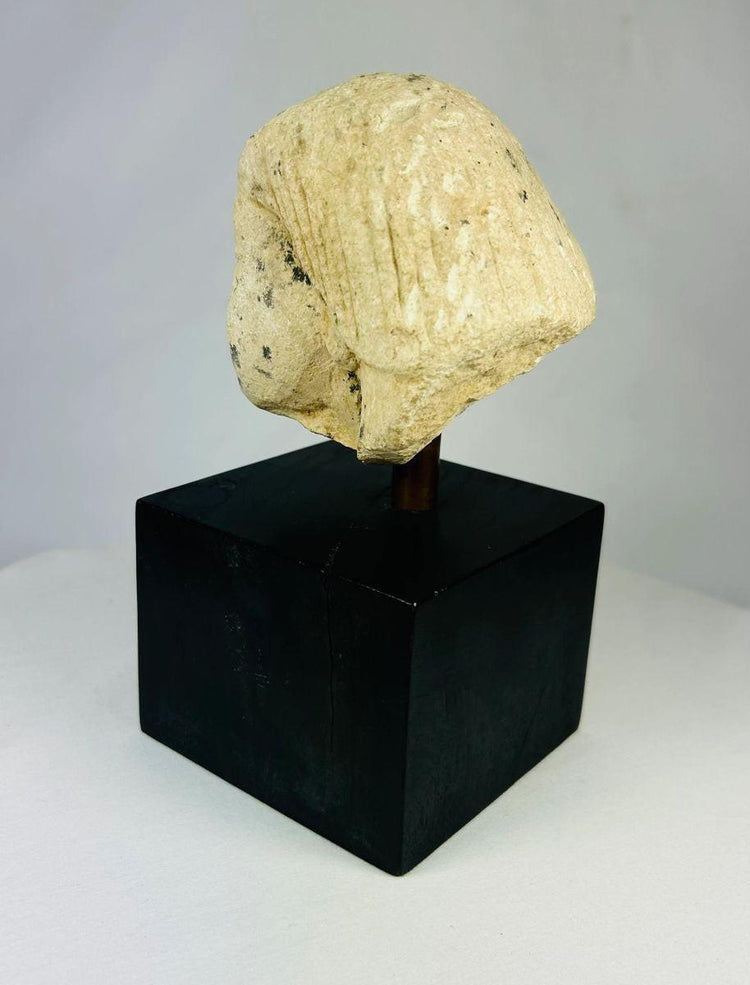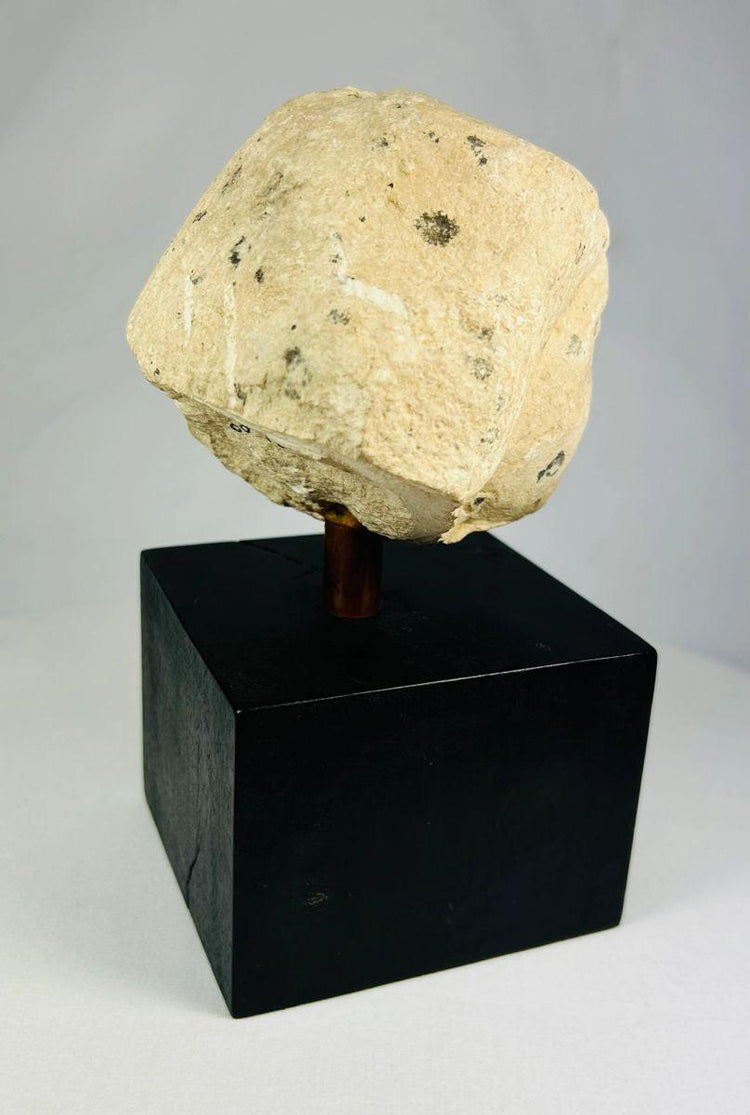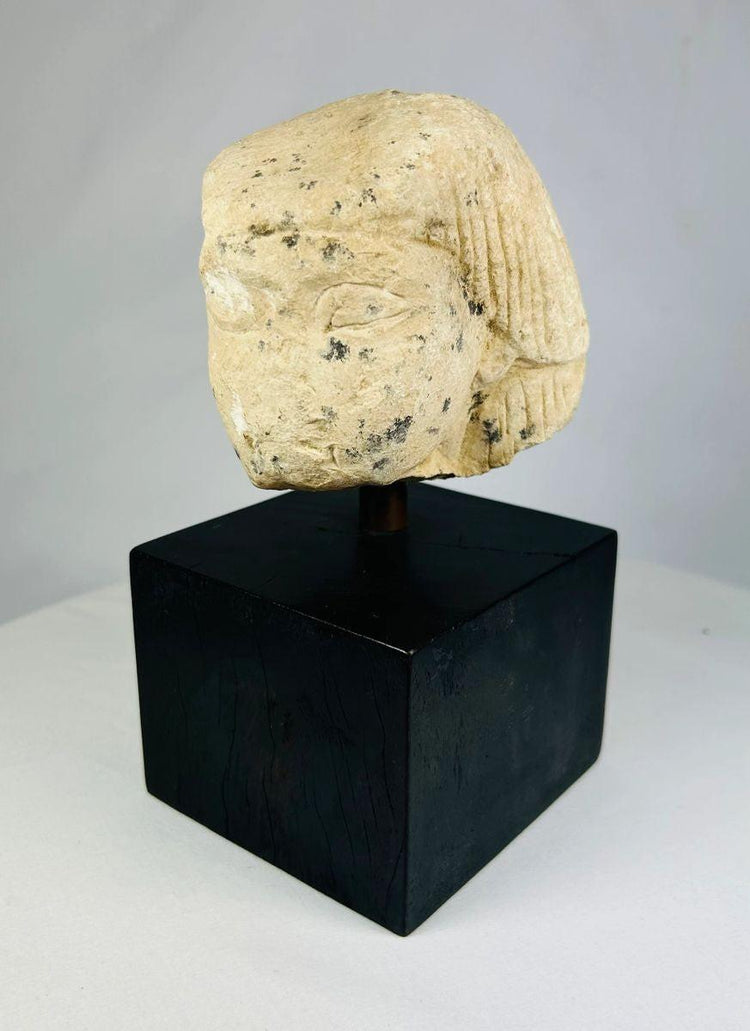Limestone Canopic Jar Lid of Imsety | Protective Son of Horus from the New Kingdom | Circa 1550–1070 BCE
Description
More
Less
Historical Context & Origin
Region: Ancient Egypt
Material: Hand-carved limestone
Period: New Kingdom, circa 1550–1070 BCE
Description
This authentic ancient Egyptian canopic jar lid dates back over 3,000 years to the New Kingdom period, one of Egypt’s greatest eras of artistic and spiritual achievement. Finely sculpted in limestone, it represents Imsety, the human-headed son of Horus and divine guardian of the liver.
During mummification rituals, Imsety’s likeness adorned the jar that safeguarded the organ most closely linked to the soul. His calm features—rounded cheeks, almond eyes, and a serene expression—embody the refined artistry of New Kingdom funerary sculpture. The piece captures the harmony of form and symbolism that defined Egyptian beliefs in protection, resurrection, and eternal life.
Features
- Rare New Kingdom canopic jar lid (c. 1550–1070 BCE)
- Human-headed Imsety, son of Horus and protector of the liver
- Distinct facial modeling typical of late 18th- to 19th-Dynasty style
- Hand-carved from dense limestone, valued for durability and sacred association
- Mounted on a custom display base for preservation and museum-quality presentation
- Includes Certificate of Authenticity (COA)
Cultural Significance
In Egyptian funerary tradition, canopic jars were essential to the ritual of preserving the body for the afterlife. Imsety, linked to the goddess Isis, symbolized divine care and rebirth. His image on the jar lid ensured the deceased’s safe passage into the afterlife and eternal protection. Today, it stands as a profound reminder of the Egyptians’ quest for immortality and their devotion to sacred order.
Condition
Excellent for its age, with natural surface weathering, patina, and faint tool marks visible under close inspection. A lightly worn archaeological inventory number is present on the reverse, indicating prior excavation or scholarly cataloging. Minor discolorations consistent with 3,000 years of burial enhance its authenticity.
Dimensions (approximate)
Height: 8 in (20.3 cm)
Width: 3.5 in (8.9 cm)
Depth: 3.5 in (8.9 cm)
Age
Circa 1550–1070 BCE (New Kingdom, Egypt)
Learn More
See More Canopic Jar Examples and Read About Their Use in Ancient Egypt From The Metropolitan Museum of Art: Canopic Jars
Explore The British Museum's Collection of Canopic Jars and Try to Label What Organs Were in Each One: Label The Canopic Jars
Description
Historical Context & Origin
Region: Ancient Egypt
Material: Hand-carved limestone
Period: New Kingdom, circa 1550–1070 BCE
Description
This authentic ancient Egyptian canopic jar lid dates back over 3,000 years to the New Kingdom period, one of Egypt’s greatest eras of artistic and spiritual achievement. Finely sculpted in limestone, it represents Imsety, the human-headed son of Horus and divine guardian of the liver.
During mummification rituals, Imsety’s likeness adorned the jar that safeguarded the organ most closely linked to the soul. His calm features—rounded cheeks, almond eyes, and a serene expression—embody the refined artistry of New Kingdom funerary sculpture. The piece captures the harmony of form and symbolism that defined Egyptian beliefs in protection, resurrection, and eternal life.
Features
- Rare New Kingdom canopic jar lid (c. 1550–1070 BCE)
- Human-headed Imsety, son of Horus and protector of the liver
- Distinct facial modeling typical of late 18th- to 19th-Dynasty style
- Hand-carved from dense limestone, valued for durability and sacred association
- Mounted on a custom display base for preservation and museum-quality presentation
- Includes Certificate of Authenticity (COA)
Cultural Significance
In Egyptian funerary tradition, canopic jars were essential to the ritual of preserving the body for the afterlife. Imsety, linked to the goddess Isis, symbolized divine care and rebirth. His image on the jar lid ensured the deceased’s safe passage into the afterlife and eternal protection. Today, it stands as a profound reminder of the Egyptians’ quest for immortality and their devotion to sacred order.
Condition
Excellent for its age, with natural surface weathering, patina, and faint tool marks visible under close inspection. A lightly worn archaeological inventory number is present on the reverse, indicating prior excavation or scholarly cataloging. Minor discolorations consistent with 3,000 years of burial enhance its authenticity.
Dimensions (approximate)
Height: 8 in (20.3 cm)
Width: 3.5 in (8.9 cm)
Depth: 3.5 in (8.9 cm)
Age
Circa 1550–1070 BCE (New Kingdom, Egypt)
Learn More
See More Canopic Jar Examples and Read About Their Use in Ancient Egypt From The Metropolitan Museum of Art: Canopic Jars
Explore The British Museum's Collection of Canopic Jars and Try to Label What Organs Were in Each One: Label The Canopic Jars
You May Also Like

